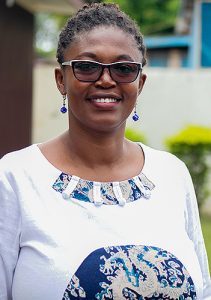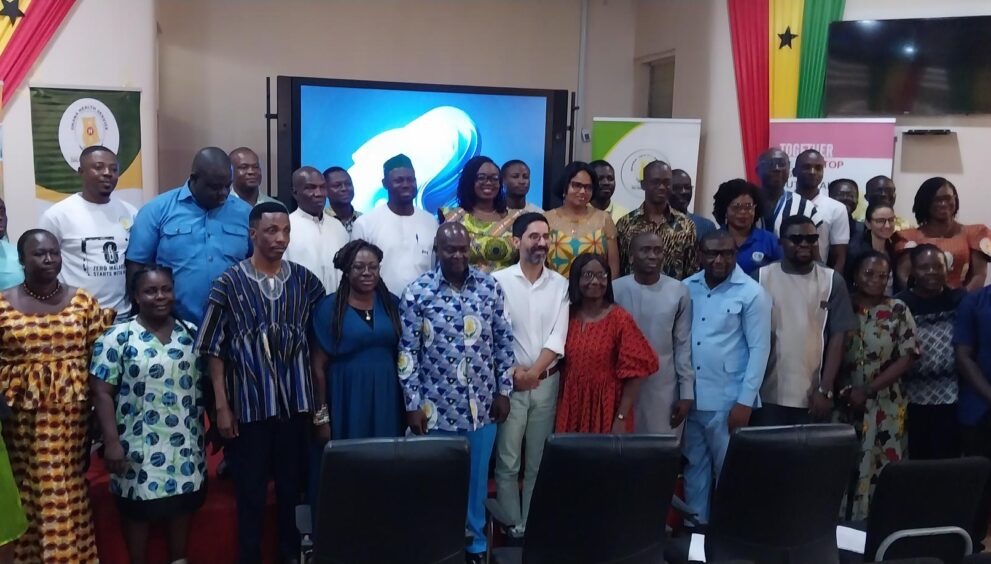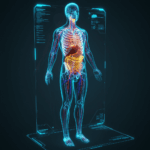In a significant stride toward bolstering the health and rights of Ghana’s younger generations, the Campaign for Female Education (CAMFED Ghana) and the Planned Parenthood Association of Ghana (PPAG) formalized a partnership through a memorandum of understanding and simultaneously launched a six-month pilot programme on June 21 at Abura Dunkwa in the Central Region.
This joint initiative aims to deliver comprehensive Sexual and


Reproductive Health (SRH) information and services to adolescents and young adults aged 10 to 24, with special attention to girls and young people with disabilities. By weaving together the complementary strengths of both organizations, the programme seeks to break down persistent barriers—stigma, misinformation, and lack of youth-friendly services—that have historically hindered informed decision-making and access to care.
The initiative will unfold across three strategically selected districts: Bole in the Savannah Region, Sekyere East in the Ashanti Region, and Abura-Asebu-Kwamankese in the Central Region. These areas were identified based on varying levels of school attendance and distinct socio-cultural dynamics, ensuring that both in-school and out-of-school youth are reached.
At the core of the design is a peer-to-peer model: 26 peer educators have been meticulously trained in each district, and these pioneers are tasked with recruiting and mentoring additional young advocates who will carry forward the SRH messaging throughout the programme’s duration. This cascading strategy promises to foster local ownership, sustainability, and ongoing dialogue among young people.
Central to the launch event was a dynamic exchange among key stakeholders, including representatives from the Ghana Education Service, the Ghana Health Service, media practitioners, traditional and religious leaders, students, and community members.
Their collective engagement underscored the importance of co-creating solutions that resonate with the lived realities of Ghanaian youth. Attendees were briefed on the programme’s objectives, structure, and implementation strategy, and were invited to offer insights and feedback to optimize outreach, refine messaging, and enhance the initiative’s long-term viability.
Addressing the audience, Madam Fairuza Abdul-Rashid Safian, Executive Director of CAMFED Ghana, elaborated on the programme’s genesis: “Girls and young women must make informed life choices relating to SRH,” she emphasized, pointing to mounting evidence of limited access to accurate information, stigma around SRH topics, and a shortage of services tailored to youth needs.
She further stressed that the initiative will work toward improving both the quality and availability of SRH services, ensuring that care is gender-responsive, youth-friendly, confidential, and inclusive. Through strategic partnerships, Madam Safian noted, the programme will foster an enabling environment in which adolescents can gain the knowledge, confidence, and support needed to make bold, life-affirming decisions.

“ Sexuality education for adolescents is beyond just sex and classroom lessons ”
Madam Abena Adubea Amoah
Complementing this perspective, Madam Abena Adubea Amoah, Executive Director of PPAG, reaffirmed her organization’s unwavering dedication to equipping girls with age- and gender-appropriate information
on sexuality and reproductive rights. She encouraged young people not to feel shy, intimidated, or demeaned when seeking SRH guidance from trusted institutions. Madam Amoah urged parents to engage patiently with their children and warns that without familial guidance, youth may turn to peers or online sources that could jeopardize their well-being. Her words highlighted the critical role of families in reinforcing accurate information and creating supportive home environments.

The Ministry of Education’s Regional Director, Dr Juliet Otami, and several officials from the Ghana Health Service echoed these calls to action. They commended CAMFED and PPAG for their leadership in adolescent SRH education and underscored the transformative impact of empowering youth, particularly girls, through knowledge and services.
In a pointed appeal, they drew attention to rising incidents of drug abuse among young people and its deleterious effect on school attendance and academic outcomes, noting that substance misuse has contributed to an alarming uptick in dropout rates among vulnerable adolescents. Their joint endorsement reinforced the view that SRH education must be integrated with broader youth development and health promotion efforts.
The six-month pilot programme leverages the technical and financial support of CAMFED Ghana and PPAG, working in close collaboration with the Ghana Education Service, the Ghana Health Service, and a network of community partners. This constellation of stakeholders will oversee the phased roll-out of community-level dialogues, school-based sessions, and outreach activities in markets and rural localities. Emphasizing evidence generation, the initiative will document lessons learned, best practices, and impact metrics to inform scale-up strategies and guide SRH programme expansion in other regions and national schools.
As Ghana confronts persistent challenges in adolescent health outcomes, ranging from unintended pregnancies to sexually transmitted infections and mental health strains, this partnership between CAMFED and PPAG represents a bold, youth-centered approach to prevention and empowerment.
By combining peer education, multi-sectoral collaboration, and rigorous evidence gathering, the initiative aspires to usher in a new era of SRH literacy and access. Should the pilot achieve its objectives, it will pave the way for nationwide adoption of youth-friendly SRH services and place Ghana at the forefront of adolescent health innovation across West Africa.
Source: CAMFED Ghana, PPAG team up to boost reproductive education among the youth




